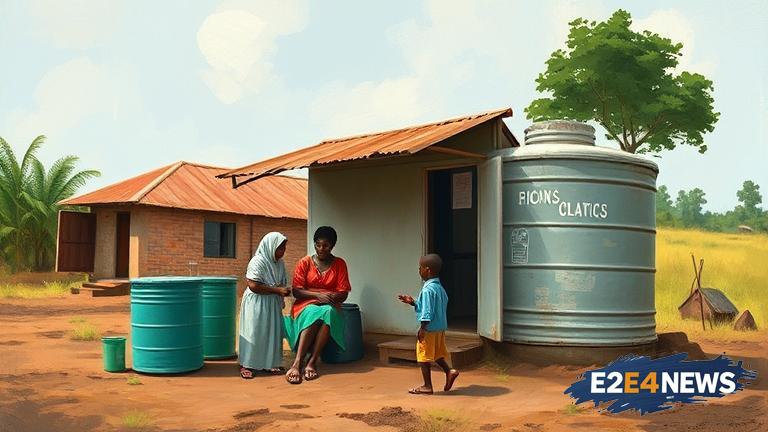Uganda has embarked on an ambitious project to harness the power of biogas to energize refugee community clinics, providing a reliable and sustainable source of energy to these critical healthcare facilities. The initiative, which has been hailed as a game-changer, aims to address the chronic energy shortages that have long plagued these clinics, hindering their ability to deliver quality healthcare services. By leveraging biogas technology, the project seeks to reduce the clinics’ dependence on traditional fossil fuels, which are not only expensive but also contribute to climate change. The biogas systems, which are fueled by organic waste, will provide a clean and renewable source of energy, enabling the clinics to power their medical equipment, lighting, and other essential services. This innovative approach is expected to have a significant impact on the lives of thousands of refugees and host communities, who will benefit from improved healthcare services and a reduced carbon footprint. The project is a testament to Uganda’s commitment to sustainable development and its determination to find innovative solutions to the country’s energy challenges. The biogas systems are being installed in several refugee community clinics across the country, with the first phase of the project already underway. The initiative is being implemented in partnership with several international organizations and local stakeholders, who are providing technical and financial support to the project. The use of biogas technology is not only environmentally friendly but also cost-effective, as it reduces the clinics’ reliance on expensive fossil fuels. Furthermore, the project is creating new job opportunities for local communities, who are being trained to install, maintain, and operate the biogas systems. The biogas project is also promoting sustainable agriculture practices, as the organic waste used to fuel the systems is being sourced from local farms. This approach is not only reducing waste but also promoting the use of organic fertilizers, which are improving soil fertility and crop yields. The project’s impact extends beyond the energy sector, as it is also contributing to the country’s efforts to reduce poverty and improve livelihoods. By providing access to reliable and affordable energy, the project is enabling refugees and host communities to engage in income-generating activities, such as small-scale farming and entrepreneurship. The biogas project is also promoting gender equality, as women are being empowered to take on new roles in the installation, maintenance, and operation of the biogas systems. The initiative is being hailed as a model for sustainable development, as it demonstrates the potential for innovative technologies to address some of the world’s most pressing challenges. The project’s success is also attracting international attention, with several countries and organizations expressing interest in replicating the model in other parts of the world. As Uganda continues to pioneer the use of biogas technology, the country is poised to become a leader in the global transition to renewable energy. The project’s impact will be felt for generations to come, as it sets a new standard for sustainable energy solutions in refugee community clinics. With its innovative approach and commitment to sustainability, Uganda’s biogas project is a shining example of what can be achieved when technology, partnerships, and community engagement come together to address some of the world’s most pressing challenges.
